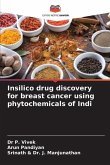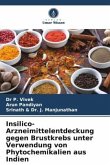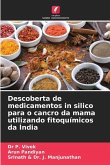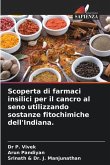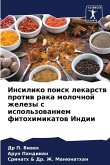Breast cancer remains one of the most prevalent and life-threatening malignancies affecting women world-wide. It originates on the breast tissues, commonly in the milk ducts or lobules and can spread to other parts of the body if left untreated. This work involves development of potential drug from phytochemicals of Indian herbs by inhibiting some selective pathways of breast cancer. The bioactive of Swertia chirata and Taxus baccata were screened for ADMET properties and docked against Cyclin-dependent kinase 4 protein, in which a compound cis-piperitol have better binding affinity at -6.64 Kcal/mol. Then the bioactive compounds of Boerhaavia diffusa and Cinnamomum verum were screened for ADMET properties and docked against fatty acid synthase protein, in which a compound 1,4-Cineole have least binding affinity of -6.70 Kcal/mol, and for epidermal growth factor receptor, the bioactive compounds of Acalypha indica and Magnolica champaca were screened for pharmacological properties and docked against it. Viridiflorene, a compound which have least binding affinity of -5.91 Kcal/mol against the epidermal growth factor receptor.
Bitte wählen Sie Ihr Anliegen aus.
Rechnungen
Retourenschein anfordern
Bestellstatus
Storno


